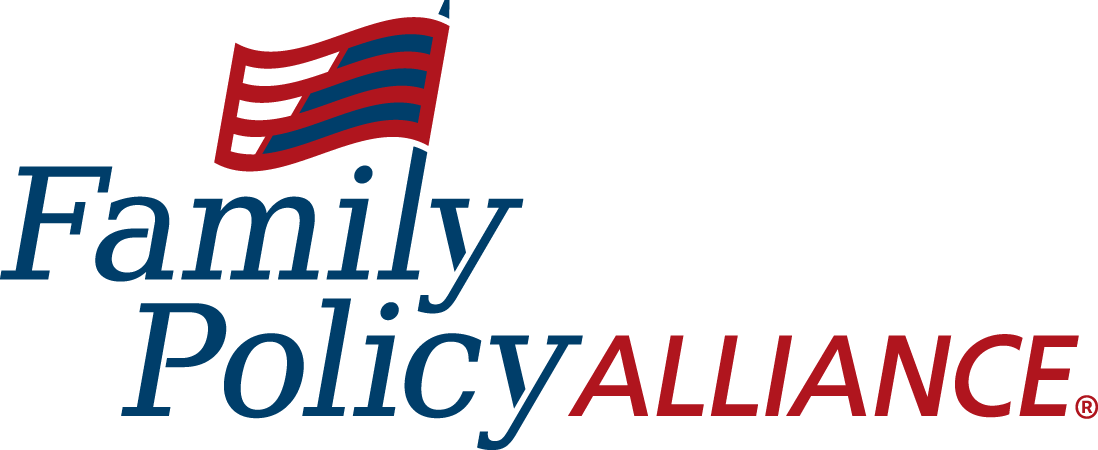Owning a business is a big responsibility. On top of managing
Religious Freedom in Business
Family Policy Alliance is dedicated to preserving our freedom to believe, share, and live out our faith – publicly as well as privately. Our faith compels us to live differently, even in the way we conduct business.
Christian business owners intentionally operate their businesses according to their beliefs. Within certain limitations, all business owners must have the freedom to live out their faith.
We promote policy that protects and enhances religious freedom for business owners of faith, and we defend against policies that erode the right to freely live out their faith in the marketplace. We also advance laws that ensure people of faith are treated fairly in the courts so that government entities do not have the power to arbitrarily dismiss them or treat them with hostility.
Our lobbyists and state allies serve as the voice of Christian business owners in capitols across the country, representing their interest in religious freedom in state policy.

An Unfair Choice:
Your Faith or Your Livelihood
Religious freedom is often called our first freedom, and this is not just because it’s first on the list in the First Amendment of our Constitution. The freedom to believe and to act on those beliefs is foundational to a free society. Yet, it’s also the freedom that is most under attack.
This is because people of faith in most societies — and certainly in America — have been the voice of Truth and morality in culture. The Church’s role is to guide culture toward what is or is not morally acceptable — in media, law and government, academia, science and technology, and certainly in business. Activists know that ending religious freedom will prevent believers from serving as “salt and light” in our culture.
Certainly, religious liberty is prominently under attack in the marketplace. Yet, excluding people of faith from being able to own and operate their businesses, or make purchasing decisions, based on their faith would have devastating effects on the economy.
Over the last several years, business owners in multiple states have been given an unfair choice by state governments: choose between your faith and your livelihood. But that isn’t how religious freedom is supposed to work. Religious freedom was always understood to protect the religious convictions of the few from the coercion of the masses. The Founders wisely understood that less-favored belief systems would be under attack unless there were explicit protections in place.

The Biblical Perspective on Religious Freedom
In Matthew 22, Jesus is confronted by some plotting Pharisees trying to trap Him. They asked: “Tell us, then, what you think. Is it lawful to pay taxes to Caesar, or not?” Looking at the denarius, Jesus replied: “Whose likeness and inscription is this?” When they replied “Caesar’s,” Jesus concluded: “Therefore, render to Caesar the things that are Caesar’s, and to God the things that are God’s.”
With this single statement, Jesus states there is a role for government and a role for God. However, did Jesus say they were equal? Not at all! Yet, as Christian business leaders, we know that we are commanded to submit to governing authorities for all authority has been established by God. And to resist authority is to resist what God has established (Rom. 13:1).
The challenge presents itself when the two seem to conflict. Scripture contains several examples of believers—when in the performance of their work—faced a choice between government and God and what to do. Here are just two:
The Hebrew Midwives — While the Israelites were enslaved in Egypt, the King of Egypt feared their increase in number would lead to an increase in power. Recognizing this, he commanded the Hebrew midwives; “when you serve as midwife… if it is a son, you shall kill him” (Ex. 1:16). In other words, while working to deliver the child, if it is a boy, you are to kill it. The story continues that the midwives “feared God” and disobeyed the king and when confronted by him, they lied and said that the Hebrews give birth before the midwife can arrive to perform her work. Scripture says of this; “So God dealt well with the midwives. And the people multiplied and grew very strong” (Ex. 1:20).
Daniel and what sent him to the Lion’s Den — Daniel, as an exile, worked as a senior leader in the nation of Babylon. In this role, “he became distinguished above all other high officials” (Dan. 6:3). In other words, because of Daniel’s work integrity, he was to be promoted. This caused the other leaders to become jealous and plot against Daniel the only way they knew how. They said, “we shall not find any complaint in this Daniel unless we find it in connection with the law of his God” (Dan. 1:5). So, these leaders conspired to trick the King into crafting a law that contradicted the law of Daniel’s God. When Daniel refused to follow the new law, he was convicted and sent to the lions. The good news is, God honored Daniel, saved him from the lions and demonstrated His power to the king and nation upon which, the king threw the conspirators and their entire families to the lions (Dan. 6:24).
Christians in the business world today are confronted by the same basic choices between the demands of government and the dictates of their faith. Government entities are attempting to force business owners to operate their businesses in ways that violate their religious convictions — or else risk losing their businesses altogether. In the case of Daniel and the Hebrew midwives, they trusted in God to deliver them from government whose laws violated God’s laws. And He did!
Family Policy Alliance ensures that business owners of faith — and their customers — have the freedom under earthly authority to participate in the marketplace without violating their duty to God’s authority.
A Brief History on
the Free Exercise of Religion
The free exercise of religion was historically one of the most protected freedoms in America — until recently.
In 1990, in a case known as Employment Division v. Smith, the Supreme Court rolled back most of these protections. In response, a bipartisan Congress passed the Religious Freedom Restoration Act (RFRA), signed into law by then-President Bill Clinton, to restore the balancing test used to the protect our free exercise of religion in the courts.
In 1997, in City of Boerne v. Flores, the Court held that the federal RFRA only applied to federal claims. Thus, individual states had to pass their own RFRAs. There are currently 21 states have some sort of RFRA. Federal and state RFRAs are used as a defense when the government has violated a person’s sincerely held religious beliefs.
In 2014, RFRA was successfully used to defend the right of Hobby Lobby, a Christian owned corporation, to be exempt from Obamacare’s contraceptive mandate. In Hobby Lobby v. Burwell, the Court held that the government had to provide a religious corporation a reasonable accommodation to the general law in order not to violate the corporation’s free exercise of religion.
SEE IF YOUR STATE HAS RFRA PROTECTIONS
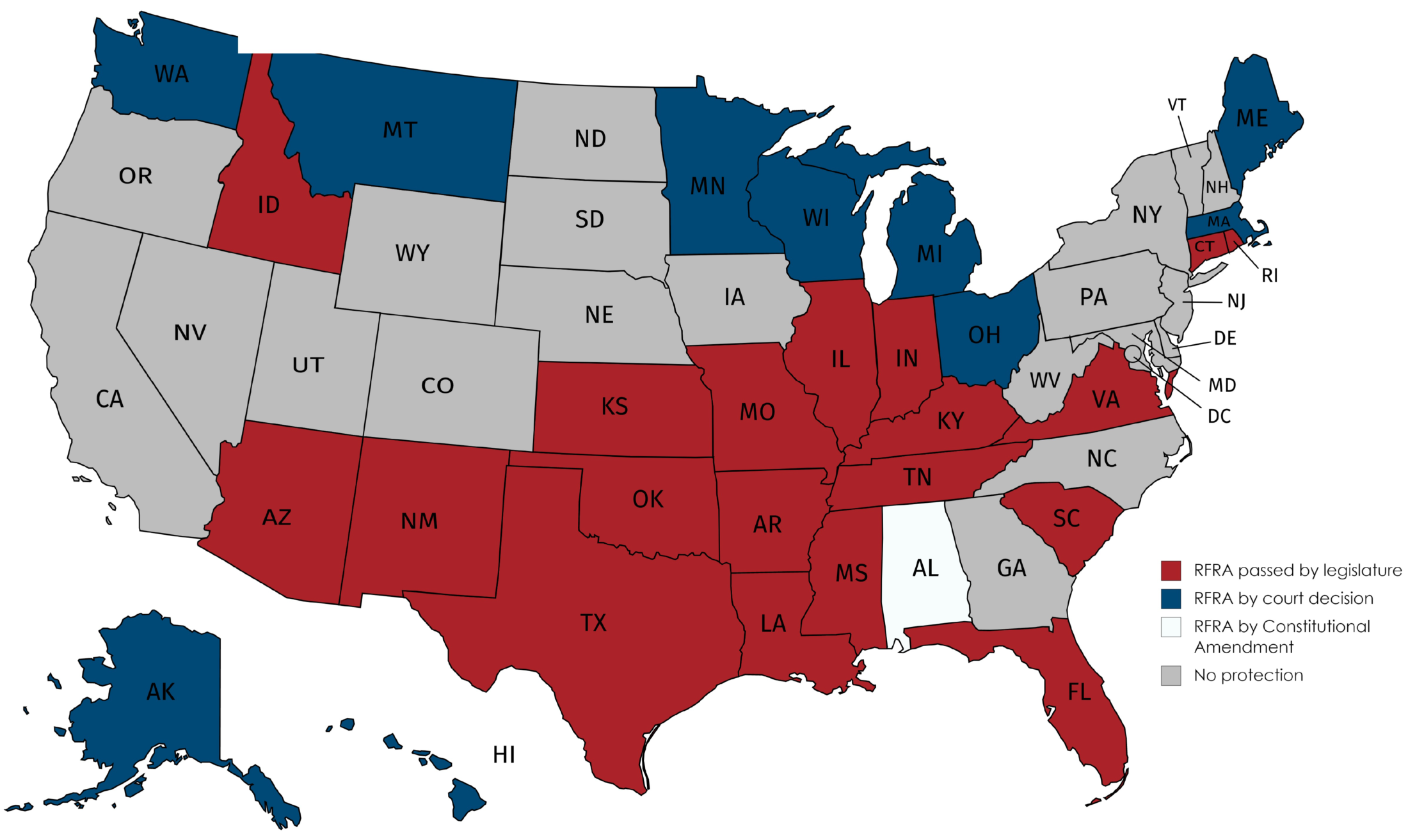
The Free exercise Clause in the Constitution has also been used to protect religious business owners who do not want to be compelled to participate in an event that violates their religious beliefs. The most famous case illustrating this is Masterpiece Cakeshop v. Colorado Civil Rights Commission. Masterpiece centered around a Colorado baker, Jack Phillips, who politely declined to make a wedding cake for a “same-sex” wedding. He was accused of violating the state’s sexual orientation and gender identity law (SOGI). Jack had made many other baked goods for the homosexual couple, but because his artistry was an outworking of his relationship with his Savior, making a cake — and thus participating in a wedding opposed to the biblical teaching on marriage — would violate the foundational faith that led him to start his business in the first place.
In 2018, the Supreme Court upheld Jack’s right to live out his beliefs and condemned the Civil Rights Commission’s open hostility to his faith. Jack has been targeted for his beliefs by LGBTQ+ activists and has since been sued two more times on similar grounds.
Read an article from our archives to learn what failures to protect religious freedoms forced Jack to go to court.
Strengthening Religious Freedom in Business
Recent religious freedom bills we have worked to advance:
A bill known as the “Religious Freedom Restoration Act” modeled on federal law to ensure that individuals and businesses of faith can get a fair day in court if their religious freedom rights are threatened by the state government
GA S.B. 221
Known in Texas as the “Save Chick-fil-A bill,” this new law ensures that Texas businesses cannot be discriminated against because of who they donate to or who they support.
TX S.B. 19788
This bill ensures that churches, Christian schools, Catholic hospitals and other faith-based ministries cannot be forced to pay for abortion-inducing drugs in their insurance plans against their deeply held religious beliefs.
NJ S.B. 3804
Culture and economy only thrive with the free exchange of beliefs and ideas. That’s why Family Policy Alliance works to advance the right of business owners and their families to freely live out their faith.
Forced to Violate Their Faith
There are four primary scenarios where business owners are forced to violate their faith:

Employment
Governments are trying to force businesses to retain or hire individuals who do not fit their businesses values. For example, a funeral home is being forced to retain a man who has begun to identify as a woman, dress like a woman, and wants to be treated as a woman. However, a funeral home is a very solemn place where families are in grief. The owners do not think it an appropriate place to promote social experimentation in violation with their values. Business owners should have the right to make these determinations for their businesses.

Insurance
States are attempting to force private companies to provide health insurance that covers abortions and gender-transition services. Not only do these services violate many employers’ religious convictions, but many of them are prohibitively expensive.
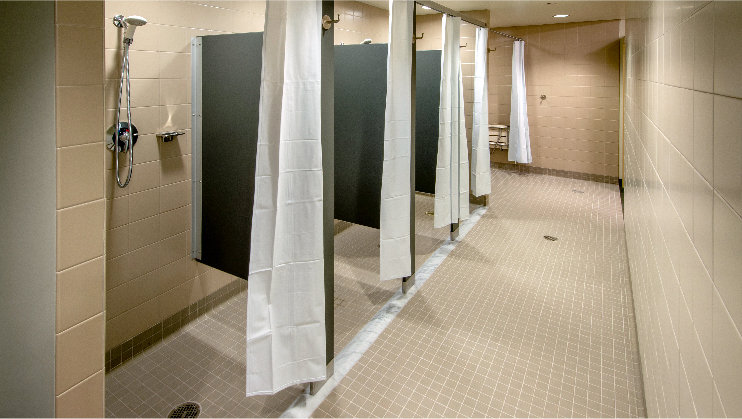
Facilities
State legislatures and some localities are attempting to force businesses to allow biological men into women’s bathrooms, locker rooms and changing rooms. This has a major impact on businesses – especially small to medium-sized businesses – which, depending on the law, may have to do major renovation to comply, or may have to put women and children at risk by allowing men into vulnerable places, such as locker rooms and fitting rooms.
Events
Many localities and some states have passed what are known as sexual orientation and gender identity laws (SOGI). These laws have been used repeatedly to attack people of faith in the business sector, particularly those in the wedding industry. Florists, photographers, venue owners, and bakers are being told they must participate in same-sex wedding or gender transition celebrations regardless of their biblical views on marriage and gender. Many have faced lawsuits, forced “re-education” for them and their staff by the state, civil penalties, and even criminal penalties as well as the loss of their business.
But it isn’t just those in the wedding industry being affected. Graphic designers and other artists have been targeted by state governments for refusing to create custom-made materials to advance the LGBTQ+ agenda — such as promoting gay-pride events.
SEE WHAT SOGI LAWS ARE IN YOUR STATE.
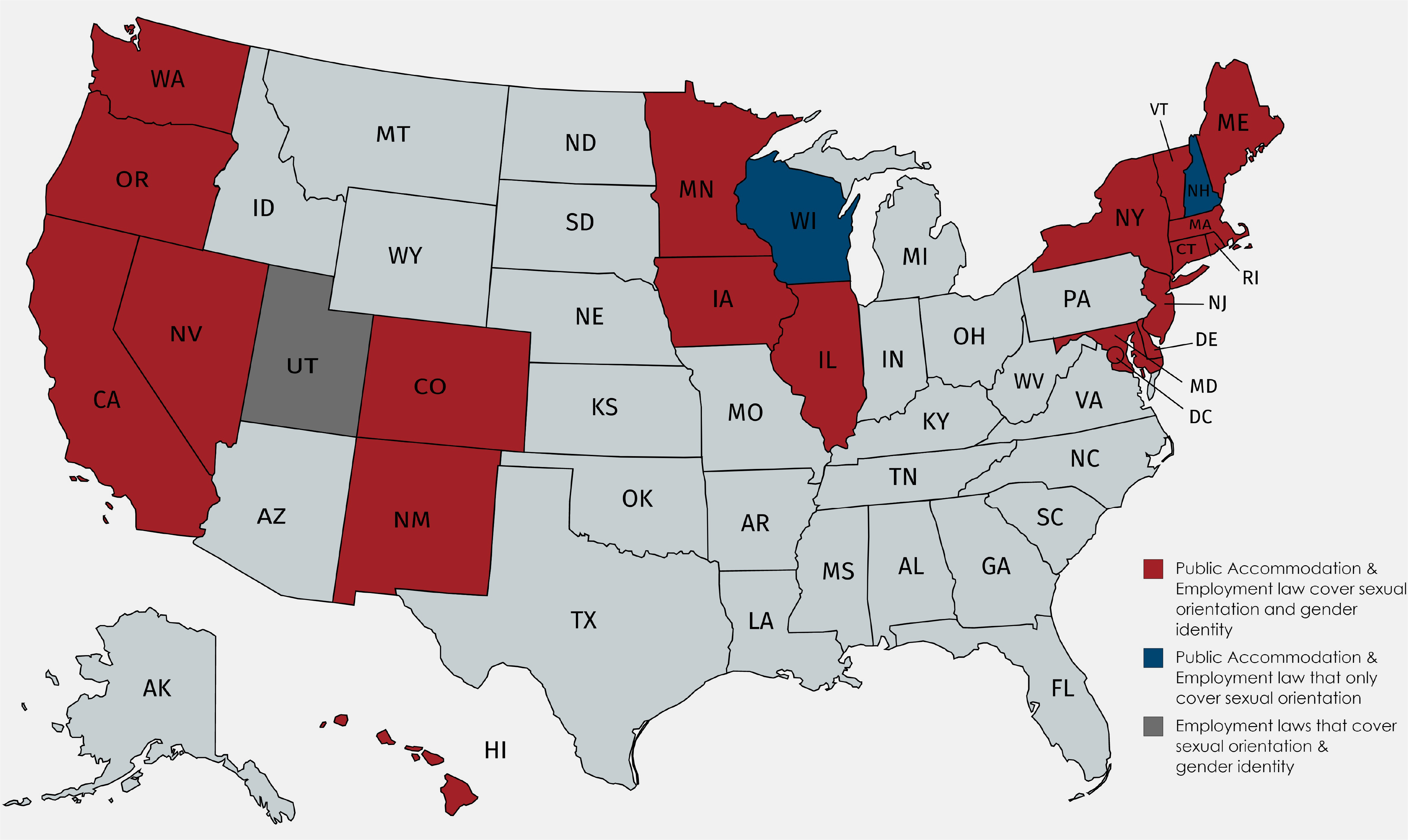
UNEQUAL TREATMENT BY GOVERNMENT
Some localities have tried to exclude certain businesses from a government contract or other benefit (such as grants) simply because of the business’s stance on an issue. One of the most well-known instances of this involved Chick-fil-A in San Antonio, Texas. The city council excluded Chick-fil-A from the city’s airport because of the restaurant’s affiliation with certain religious nonprofits. This is not the free market at work, but powerful government actors choosing which business owners’ beliefs it agrees with.
Family Policy Alliance was proud to work with our state ally, Texas Values, to pass a bill that prohibits this kind of faith-targeted discrimination in the Lone Star State.
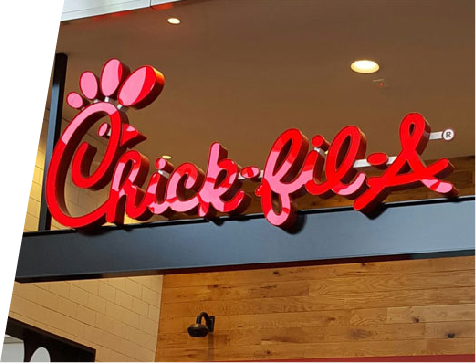
What's Happening in Business
We never stop in the defense of life, the family, and your religious freedom. Keep up-to-date with what is happening across the nation, and learn how you can join us in taking action.
“Equality Act” Gets Fast-Tracked in Senate
Abortion, Business, Churches & Ministries, Education, Parental Rights, Religious Freedom, Sexual Orientation, Transgender
Just a little while ago, the U.S. House voted 224-206 to pass
Pelosi’s House Just Passed Most Dangerous Bill. Now What?
Stay connected with email updates
Unleash your citizenship! Get news, commentary and alerts delivered right to your inbox.
